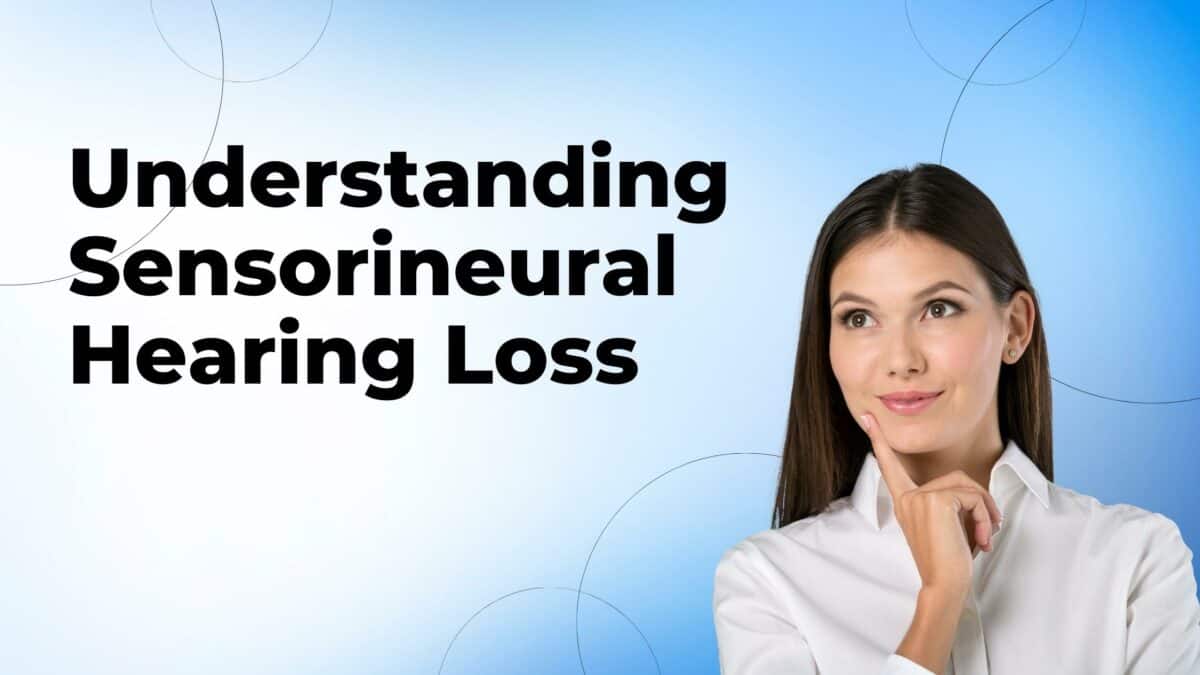Hearing loss caused by injury to the inner ear is known as Sensorineural Hearing Loss. The inner ear, which involves delicate mechanics and neuronal connections, comprises various delicate components, the majority of which cannot repair or renew themselves if destroyed. Inner ear injuries frequently result in some degree of irreversible hearing loss.
Sensorineural hearing loss is characterized by progressive, long-term damage to the inner ear that worsens over time. It is the most frequent type of hearing loss, accounting for 9 out of 10 reported hearing loss cases due to the inner ear’s failure to recuperate after injury.
Sensorineural hearing loss is derived from the words “sensory” and “neural,” implying it affects both the brain and the ear.
‘Sensory’ refers to the ear.
Let’s start with the ‘sensory’ component of the word, which refers to the ears. Hair cells are small sensory cells in the ear tuned to detect sound waves at a specific frequency. When sound waves trigger hair cells, the hair cells convey the sound waves to the auditory nerve, which analyzes and interprets the information in the brain’s auditory cortex.
Our hair cells have a finite lifespan and cannot repair, replace, or regenerate if damaged. Hair cells can also be damaged by a lack of proper circulation, infection, or extended exposure to loud noise.
‘Neural’ refers to the brain.
The neurological aspect of the inner ear is the other half of the “sensorineural.” The auditory nerve and how it carries information from the hair cells are at the basis of a person’s hearing loss if they have neural hearing loss. Neural hearing loss can happen at any stage along the nerve structure’s passage to the brain, from hair cells to nerve structure.
Sensorineural Hearing Loss Symptoms
When a listener has sensorineural hearing loss, they will generally be able to detect sound, but it will be muted or unclear. A lot of folks say their ears feel blocked up.
Locating the source of a sound and processing speech will become more complex. Sensorineural hearing loss causes inner ear damage, similar to putting together a puzzle with missing pieces. A person can typically pick up a few spoken words but not the entire sound picture.
There are often issue areas with sensorineural hearing loss that cluster around specific frequencies. When you go in for a hearing exam, the audiogram will show your hearing specialist where the concentrated trouble areas are. A common symptom is the inability to hear high-frequency sounds, such as children’s voices. Hearing aids can be specifically tailored to compensate for the areas where your hearing is the most affected if you have sensorineural hearing loss.
Sensorineural hearing loss is frequently associated with other hearing and balance issues. Tinnitus is a ringing in the ears experienced by nearly half of those with sensorineural hearing loss. Dizziness and vertigo are also quite prevalent problems.
Sensorineural Hearing Loss in Different Degrees
Sensorineural hearing loss is divided into different degrees based on the severity of the hearing loss as evaluated by the decibel range.
Mild, moderate, and severe are the most common. Deafness comes from profound and total hearing loss, which is less prevalent.
The way the brain processes sound changes as sensorineural hearing loss progresses. The brain compensates for missing audio information by repurposing underutilized hearing pathways and diverting other cognitive resources to hearing comprehension.
Our hearing gets more and further away from its initial state as the brain restructures itself around the damaged hearing. This is why, if at all feasible, it is preferable to treat hearing loss while the neurological changes are still minor. Hearing aids and assistive devices, for example, are considerably easier for our ears to adjust to.
Treatment Options for Sensorineural Hearing Loss
Even though most sensorineural hearing loss is permanent and irreversible, hearing aids can help you manage it successfully. Hearing devices can assist persons with sensorineural hearing loss to rehabilitate their hearing and stay connected to their friends and family. Hearing aids today are available in various styles and features to assist consumers in choosing the best solution for their hearing loss and lifestyle.
If you think you might be experiencing sensorineural hearing loss, contact us today. Our comprehensive hearing examinations will determine if you require expert assistance.

